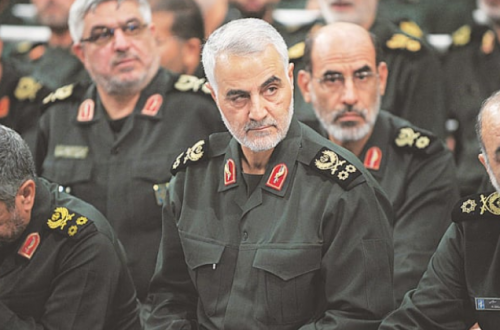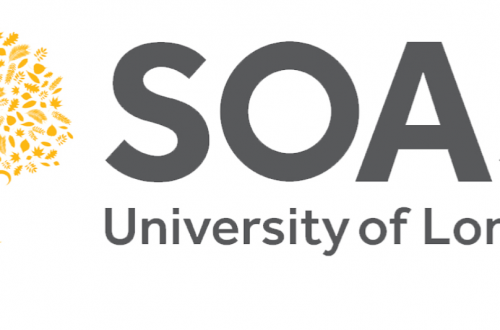I listened to Sam Harris’s latest interview podcast with guest Maryam Namazie after reading some of the (many) online responses. This one was fairly typical.
That was the worst interview I have ever heard! She was horrible! Refusing to answer everything!
Maryam Namazie’s contribution to this conversation about profiling, immigration and bigotry was by no means as unremittingly awful as some of her critics maintained. But listening to her and Sam try to find common ground, or even identify a clear area of disagreement, was a bit like spending two hours trying unsuccessfully to thread a needle. They were temperamentally and rhetorically ill-matched.
The spectrum of bigotry
The podcast opened with an interesting topic – the spectrum of bigotry. Eiynah’s recent open letter to Sam was discussed, and Maryam’s own views on the issue probed. She said she ‘wouldn’t call Douglas Murray or you a bigot or fascist’ (13:00) and then made an interesting parallel with the dynamic on the Islamist (as opposed to the far right) section of the spectrum. Here’s another listener’s take on this part of the exchange.
I felt Maryam made an enlightening comparison by outlining how most islamist-normalising regressives have no compulsion to be jihadists, just as not all those who contribute to the fear mongering on the right are racist jingoists. The point I wish has been elaborated on was Sam’s refutation of this idea; he pointed out that he regularly criticises the genuine damages caused by the far-right bigots, the implied corollary is that even mild-regressives are rarely critical of true islamist supporters.
Nick Lowles could perhaps be cited as an example of a ‘mild-regressive’ who does criticise Islamism, rather as Douglas Murray does of course criticise the far right. I think Maryam is right to suggest that those with weaker views in either direction may enable or embolden those with truly hateful views. But it’s very difficult to have a perfectly judged position which is immune from all criticism of offering comfort to Islamism or encouraging Islamophobia. (And those of us somewhere in the middle probably face both charges.)
Maryam’s great concern about anti-Muslim bigotry was fully evident in the podcast, but taken out of context some of her past statements could sound like someone from a quite different part of the spectrum:
Islam has wreaked more havoc, massacred more women, and committed more holocausts than can be denied, excused, re-interpreted, or covered up with such feeble defences.
She has also referred to Operation Cast Lead as a ‘genocide’, the kind of hyperbolic and inflammatory language which could be said to soften the ground for antisemitic views.
I raise these examples, not to have a go at Maryam Namazie, but to demonstrate how difficult it is, particularly when you feel passionately about any aspect of this debate, to completely avoid that rather broad and ill-defined charge of inciting bigotry.
Tommy Robinson
Sam Harris explained that he didn’t know a great deal about Tommy Robinson beyond what he’d heard on the Rubin interview. I could quite understand why Sam (given the stick he gets) was receptive towards a man who seemed ‘pre-stigmatised’ (19:00). Tommy Robinson comes over well in interviews, and it might have been useful for Maryam to have acknowledged that. In my view Sam’s positive response to Robinson was by no means a sign of bigotry – he just needed more data.
Profiling
Just a few thoughts on this topic. Both here and in the discussion on immigration it was clear that Maryam Namazie identifies very strongly with people like herself – raised as Muslims, yet ex-Muslim (or at least liberal and secular). Although in the abstract she thinks the veil is the ‘flag of far-right Islamism’, when faced with the proposal that a woman covering her face should be viewed with a little more scrutiny, her instinct is to speculate that the woman might be covered against her will. I think there’s a place, in the necessarily complex decision-making processes which feed into security policies, both for the coolly rational and rather detached approach taken by Sam Harris and for Maryam Namazie’s more personal and empathetic line.
Immigration
For me the most frustrating segment of the show was the concluding discussion on immigration. Maryam Namazie spoke in favour of open borders, and resisted almost any checks on the kind of people who might be allowed into Europe, out-and-out criminals aside. It sometimes seems as though Maryam (and some others) wield their very liberal views on immigration as a kind of talisman to ward off the possibility of contamination by views that might be deemed ‘far right’. (By analogy, I’ve come across the suggestion that secular Muslims use their pro-Palestinian credentials as a shield against criticism from more ‘normative’ types.)
I felt Maryam had to do more to square the circle here – there seemed a disconnect between her extreme unconcern about any negative consequences of immigration, and her long standing and strongly held concerns about the impact of Islamist views on Muslims and ex-Muslims in Europe. She didn’t have to propose a solution – just acknowledge more directly the potential problem, the incompatible goods which may be at stake in this debate. She blithely asserted that by the third generation immigrants had integrated, yet it is often pointed out that the current younger generation may be more zealous than their parents.
Here, as with profiling, she strongly resisted any appeal to statistics (about the prevalence of Islamist ideas amongst Muslims) and insistently focused on people she could identify with, secular-minded victims of Islamism. Sam fully and warmly acknowledged the importance of supporting such people (1:30), but also pointed out that mass immigration from Muslim countries will inevitably involve many people whose view are incompatible with our values. ‘I see people, I don’t see collectives’ she countered, but by this point in the interview it did seem as though the only people she was able to see clearly were people like her. I agree with her that it’s incredibly important to remind us all of the many Muslims and ex-Muslims fighting Islamism – but I don’t think this, in itself, is a sufficient answer to the question, or problem, Sam posed.
The reviewer I quoted earlier notes how Maryam could be said to blur the line between Sam and far right bigots:
Whilst it was clear on the sourer points that Maryam did not think Sam contributed to the extremes of this bigotry, it was difficult to tell as the complexities creeped in and the charges were more ambiguous whether or not Maryam believed Sam to be culpable. There appeared to be points where Sam felt he was being addressed when it was clear to me that Maryam was exploring the wider issues. At these moments, Sam might’ve felt misrepresented at times when Maryam wasn’t trying to represent anyone in particular.
Here’s a case in point:
‘When you say you are defending your culture against this alien, savage, barbarian culture, there is some bigotry there because it fails to see the humanity of people .. . equates them with the theocracies and the oppressive forces that they are fleeing’ (1:35)
And she goes on to strongly imply that Sam is defending ‘white European culture’ when he insisted, I think rightly, that he was simply in favour of the same liberal, secular values she supports.
If I’d been given the transcript of the latter part of this interview and not been told who was speaking I wouldn’t have guessed that this was Maryam Namazie. She shrugs off Sam’s question about whether it is legitimate to feel any concern about the possible proportion of immigrants who may hold Islamist views (1:41) and equates not letting people in with deporting them (1:44). If she had focused on those in urgent need of asylum from danger, the case would have been rather different, but she seemed to be arguing that Islamists in search of a better life – ‘migration – whatever’ (1:50) should also be allowed in, although here, yet again, she drifted towards her preferred mental image of the beleaguered secularist, and pleaded for ‘a little compassion for people fleeing [theocracy]’. Perhaps instead she could have focused on the problems involved in administering the kind of tests Sam implied were needed.
The ‘postmodern left’
At the opening of the interview she explained that her preferred term for the ‘regressive left’ is the ‘postmodern left’. But by the end of it – and this is why I wouldn’t have recognized her from a transcript – she seemed to have come over rather postmodern herself. In response to Sam Harris’s question – what do you do if you vet people and they turn out to be Islamists who want to live under Sharia law – she replied:
Lots of people can believe in very ridiculous things and they can be very reasonable to some. I believe some atheists have very ridiculous assertions on certain things – a lot of people think I am completely ridiculous – that’s part of the fact that we don’t all think the same, it’s very normal that we don’t. I think we cannot determine who has rights based on whether we like them or agree with them … in the same way that in Britain we have people who are conservative … who are Christian, who think that gay people are deviants, who are opposed to gay marriage, who are opposed to abortion …
As I’ve indicated, I was more often on Sam’s side in this debate. But it wasn’t quite so black and white as some have suggested and, when it comes to mapping people on the spectrum, both Sam and Maryam make important contributions to the liberal, secular middle ground.


